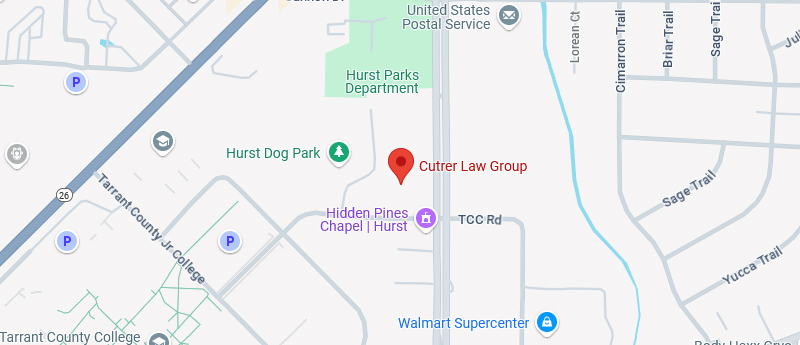If your ex has begun violating your parenting schedule (see below for some of the situations that are considered violations), you’re no doubt frustrated and upset, and it can be hard on your child as well. Something your ex may not understand is that a legally drawn-up parenting schedule is not a courtesy item. It’s legally binding. Repeated violations of the parenting schedule can result in legal ramifications.
What is Considered a Violation of Our Parenting Schedule?
There are several situations that are considered violations of parenting schedules. Here are a few:
- Refusing to let the other parent have access to their children or only providing access at random times
- Keeping the child longer at a visit than the limit set by the court
- Going by their own schedule for dropoff and pickup rather than that determined by the court
- Relocating outside the county or country without the court’s permission or moving to a new address within the county and not notifying the court
- Refusing to honor the schedule because of alleged problems with former in-laws
- Any other effort to have the child for more time than is stated in the court order
- Refusing visitation because of unpaid child support (not legal in Texas)
- Sending someone else to pick up and drop off the child
- Adding activities to the child’s schedule so as to deliberately keep the child longer than allowed
What is not Considered a Violation of Our Parenting Schedule?
It’s important to understand that while courts want to see parenting schedules respected on both sides, they don’t necessarily think every claim is valid. If your ex is chronically late to everything, it may just be something you need to live with. There may also be rare occasions when something happens that interferes with the parenting schedule.
As long as it’s rare and the ex communicates that with you, the courts aren’t likely to pursue legal action. In fact, they could view you negatively as someone who’s being overly litigious and using the court system as a revenge mechanism. If you’re uncertain if what’s happening would qualify for legal action, contact me for a case evaluation.
My Ex Says My Child Doesn’t Want to See Me. What Do I Do?
Legally, no child under the age of 18 has the right to refuse to see a parent. The only way the child can be kept apart from one of the parents is for the other parent to go to court and ask for a schedule modification. That isn’t something to be undertaken lightly. The courts tend to want to allow both parents access to the child unless there is evidence of abuse or harm to the child.
What Are the Potential Legal Consequences for Violating Our Parenting Schedule?
If a court finds that your ex has violated the parenting schedule, some consequences might include:
Writ of Habeas Corpus
This is a court order that orders the ex to return the child to the other parent and abide by the terms of the parenting agreement. These can also be issued on an emergency basis if there is concern for the child’s safety and welfare.
Contempt of Court
There are two types of contempt of court in Texas:
Direct Contempt of Court
Direct contempt of court happens in the courtroom itself and occurs when one of the parents tries to disrupt the proceedings by talking over the judge or the other parent.
Indirect Contempt of Court
Indirect contempt of court happens outside the courtroom and involves the ex deliberately violating a judge-ordered court order.
Both of these are serious matters in Texas, where judges have the ability to order a number of consequences depending on the severity of the situation:
- Jail time of up to six months
- Fines of up to $500 for each violation
- Having to pay the other attorney’s court costs and fees
- Placed in community supervision, a type of probation
- Decrease in the amount of time with the child by a modified parenting schedule
- Parent is forced to have supervised visitations where they are not left alone with the child
Criminal Consequences
The ex could face criminal charges because of flagrant violations of the court-ordered parenting schedule. These largely come into play when the ex refuses access to the child, keeps the child longer than they’re supposed to, or takes them away without the other parent’s permission, while knowing that what they’re doing is violating the schedule with the full intention of depriving the other parent of their child. These types of charges can result in jail time of up to two years and a fine of up to $10,000.
Civil Liability
Criminal charges aren’t the only severe consequence of violating a parenting schedule. You can file a lawsuit asking for monetary damages when your child is deliberately withheld from you.
The specific Texas law on this states, “A person who takes or retains possession of a child or who conceals the whereabouts of a child in violation of a possessory right of another person may be liable for damages to that person.”
Where Can I Get Help if my Ex Is Violating Our Parenting Schedule?
Call me as soon as possible at 817-813-8513 to request a case evaluation. In the meantime, document every occasion when the parenting schedule is violated. This is stressful for you and the child involved, so reaching legal compliance will be a high priority. I know how precious and important your child is to you, and I’ll work hard to ensure you continue having the visitation that’s legally your right.








 1845 Precinct Line Road
1845 Precinct Line Road info@akcfamilylaw.com
info@akcfamilylaw.com 817-854-1651
817-854-1651



